Ram Navami: Significance, Traditions, And Festivities
Ram Navami, one of the most significant festivals in Hinduism, commemorates the birth of Lord Rama, the seventh avatar of Lord Vishnu. Observed on the ninth day (Navami) of the Chaitra month in the Hindu calendar, which typically falls in March or April according to the Gregorian calendar, Ram Navami holds profound spiritual and cultural significance for millions of devotees worldwide. In this blog, we delve into the rich tapestry of traditions, rituals, and celebrations that characterize this auspicious occasion.
The Legend of Lord Rama
The epic Ramayana, attributed to the sage Valmiki, narrates the life and exploits of Lord Rama, an embodiment of righteousness (dharma), compassion, and devotion. Born as the eldest son of King Dasharatha and Queen Kaushalya of Ayodhya, Rama's life exemplifies the triumph of good over evil and serves as a guiding light for humanity.
The tale of Rama's exile to the forest, his victory over the demon king Ravana, and his eventual return to Ayodhya after fourteen years of exile forms the core narrative of the Ramayana. Each episode in Rama's life imparts valuable lessons on duty, loyalty, sacrifice, and moral conduct, making him an enduring symbol of virtue and nobility.
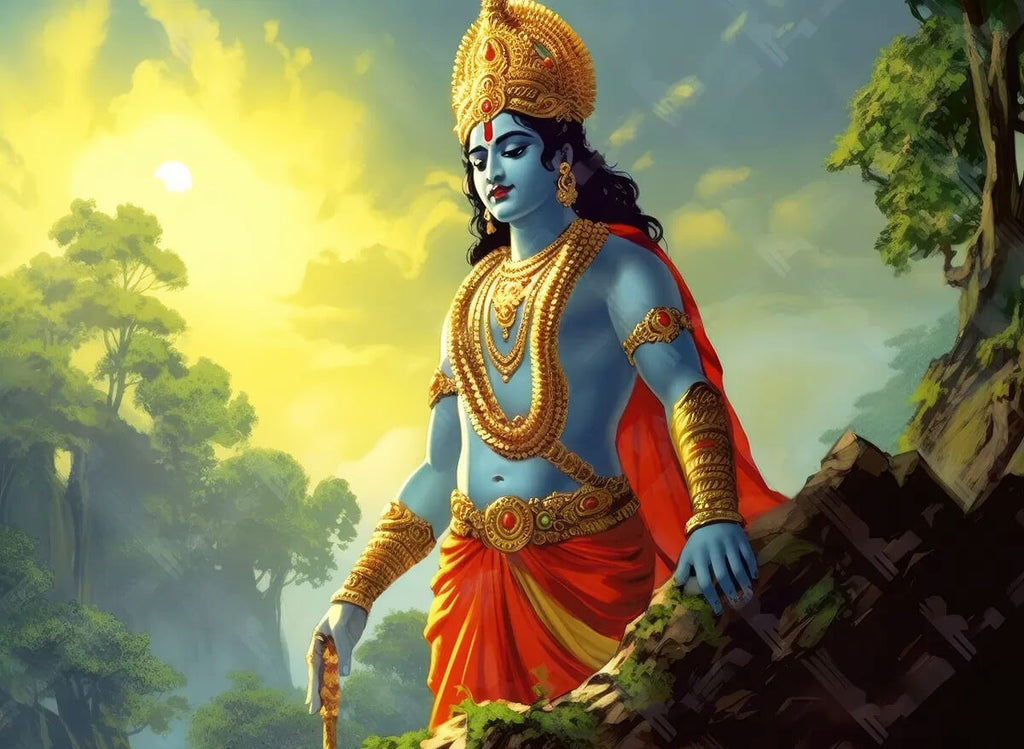
Ram Navami holds multifaceted significance for devotees across the Hindu spectrum. It symbolizes the victory of righteousness over evil and the triumph of truth over falsehood. The day is marked by fasting, prayer, and the recitation of sacred scriptures, invoking divine blessings for spiritual growth and inner transformation.

Moreover, Ram Navami transcends religious boundaries, embodying the universal values of love, compassion, and brotherhood. It serves as a reminder of the eternal principles of justice and morality that underpin a harmonious society.
Observances and Rituals
Morning Rituals:
Early mornings, a ritual bath, and clean clothes are worn by devotees.
They visit temples dedicated to Lord Rama, offering prayers and performing elaborate rituals.
The sacred texts such as the Ramayana and the Vishnu Sahasranama are recited with devotion.
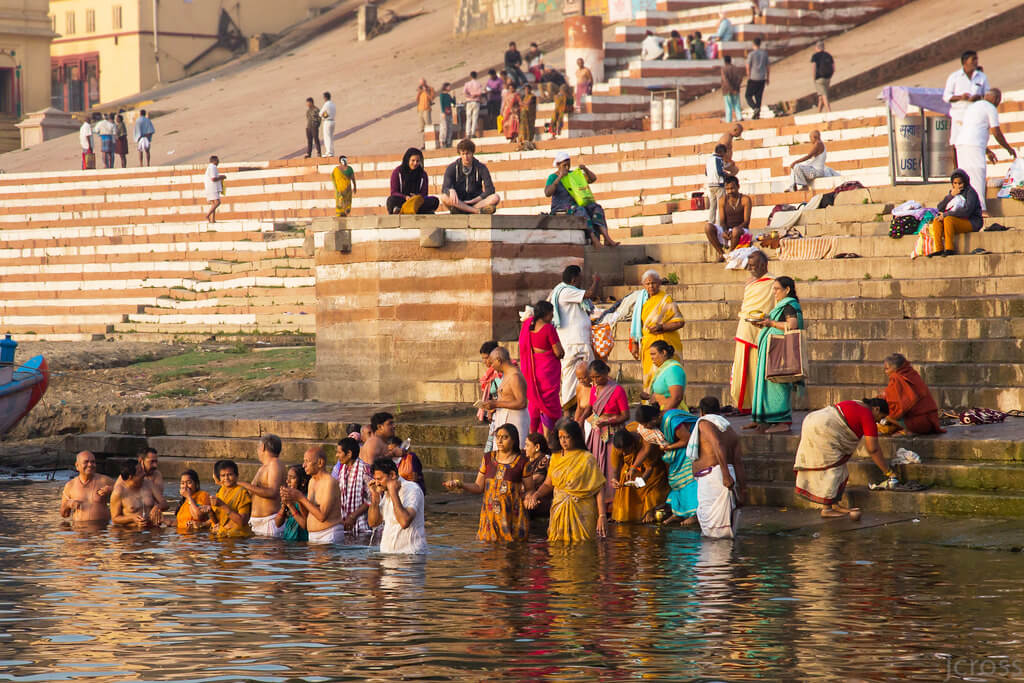
Fasting:
Many devotees observe a strict fast on Ram Navami, abstaining from food and water until sunset.
Fasting is believed to purify the body and mind, facilitating spiritual upliftment and self-discipline.

Bhajan and Kirtan:
Devotional songs (bhajans) and hymns extolling the virtues of Lord Rama resonate in temples and households.
Kirtans, musical recitations of the divine names and deeds of Rama, inspire devotees to immerse themselves in devotion.
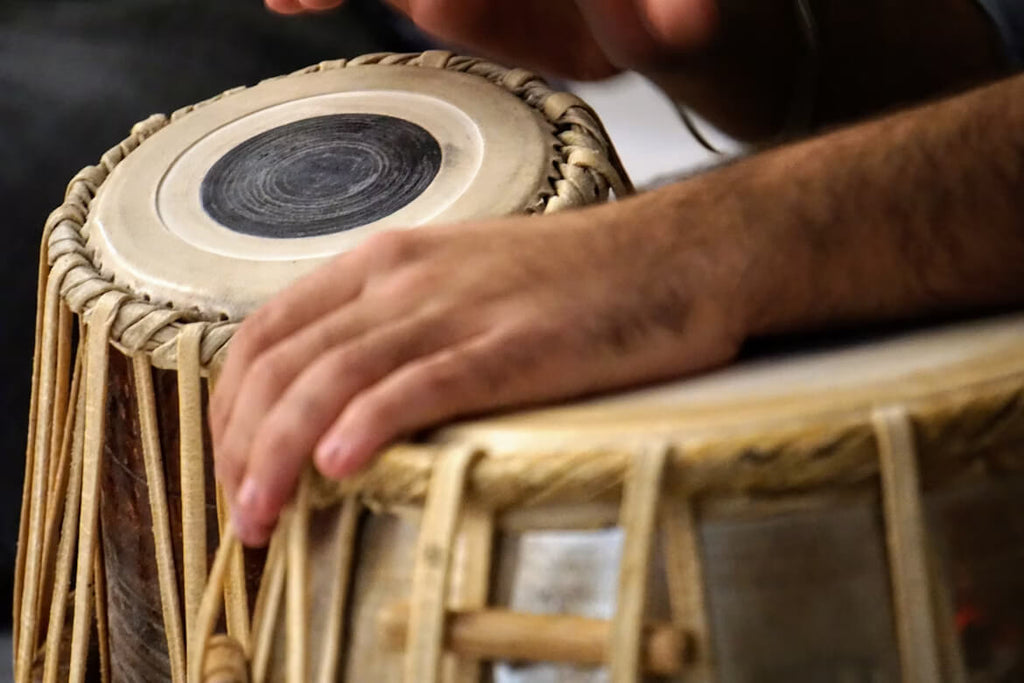
Processions and Rathyatras:
In some regions, colorful processions featuring elaborately adorned idols of Lord Rama, Sita, Lakshmana, and Hanuman are carried out through the streets.
Rathyatras, or chariot processions, symbolize Rama's triumphant return to Ayodhya and evoke a sense of joy and reverence among participants.
Community Service:
Ram Navami is also a time for charitable activities and community service, reflecting Rama's ethos of compassion and social responsibility.
Devotees engage in feeding the hungry, distributing food, and offering assistance to the needy, thereby embodying the spirit of selfless service.
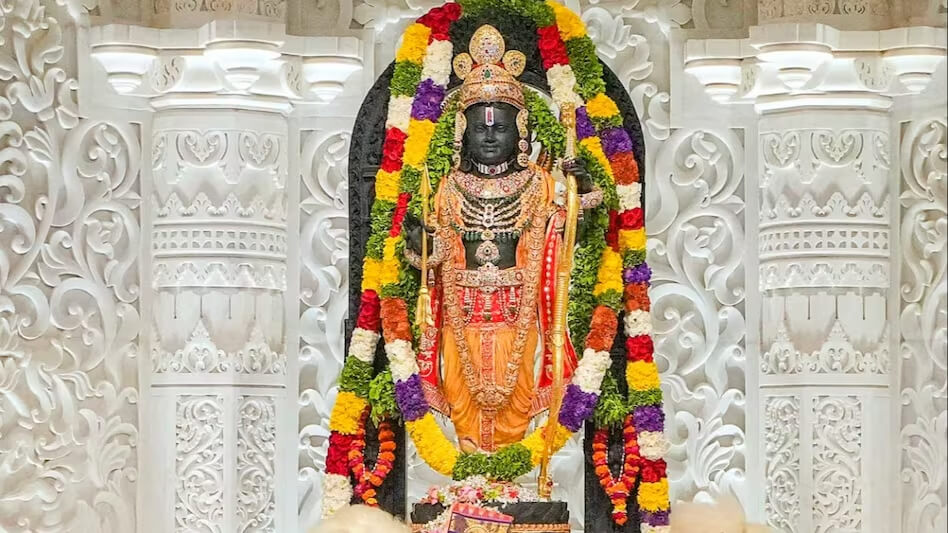
Regional Variations
Ram Navami is celebrated with great fervor and regional variations across India and the world. In North India, especially in Uttar Pradesh, Ayodhya, the birthplace of Lord Rama, becomes the epicenter of grand festivities. Temples are adorned with floral decorations, and elaborate rituals are conducted amidst chanting of Vedic hymns.
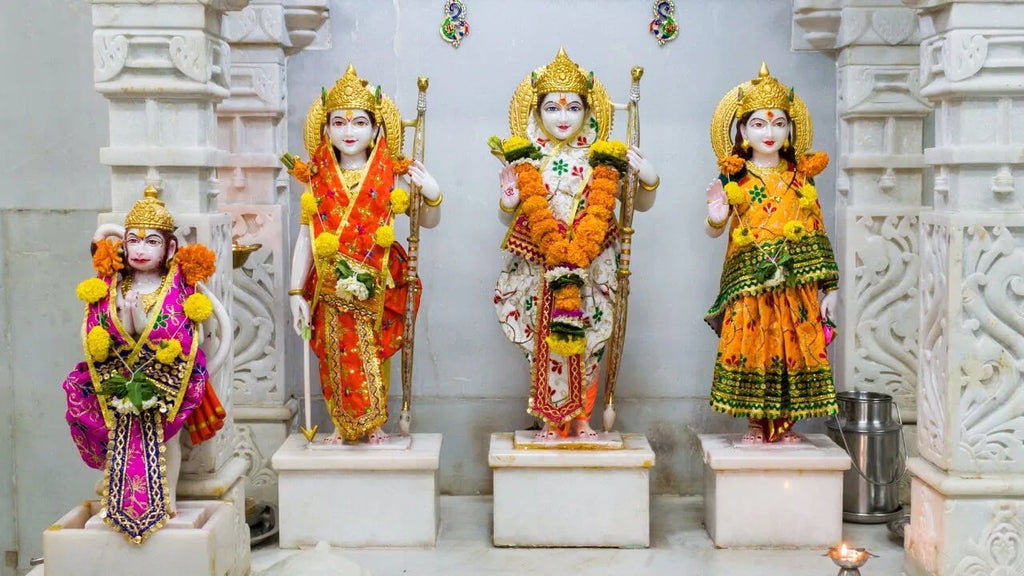
In South India, particularly in Tamil Nadu and Andhra Pradesh, the festival assumes a unique cultural flavor. Temples are adorned with fragrant flowers, and devotional songs reverberate in the air. Special offerings such as the traditional Panakam (a sweet drink) and Kosambari (a lentil salad) are prepared and distributed among devotees.
In Western India, particularly in Maharashtra, the festival is celebrated with gusto. Colorful processions featuring tableau depicting scenes from the Ramayana are taken out, accompanied by music and dance. Temples resonate with the melodious rendition of bhajans, filling the atmosphere with divine grace.
Historical and Cultural Perspectives
Historical Context:
Ram Navami has deep historical roots, dating back to ancient times. The Ramayana, composed by Sage Valmiki, is not just a religious scripture but also a historical document that offers insights into the socio-political landscape of ancient India. The narrative of Lord Rama's life reflects the ideals of kingship, governance, and societal ethics prevalent during that era.
Influence on Indian Culture:
The Ramayana has left an indelible imprint on Indian culture, shaping literature, art, music, and performing arts for centuries. From the classical compositions of Saint Thyagaraja and Tulsidas to the vibrant folk traditions of Ramleela, the epic continues to inspire creativity and artistic expression across the subcontinent.
Ramayana Across Borders:
Beyond India, the Ramayana has traversed geographical boundaries, influencing cultures across Southeast Asia and beyond. Countries like Thailand, Indonesia, Cambodia, and Nepal have their own adaptations of the epic, reflecting the enduring legacy of Lord Rama's story in diverse cultural contexts.
Contemporary Relevance
Moral and Ethical Values:
The teachings of the Ramayana remain relevant in today's world, offering timeless wisdom on ethics, morality, and interpersonal relationships. The characters of Rama, Sita, Lakshmana, and Hanuman serve as exemplars of integrity, loyalty, and selflessness, inspiring individuals to uphold virtuous principles in their personal and professional lives.
Gender Dynamics:
The character of Sita, Rama's consort, holds a central place in the Ramayana narrative, embodying qualities of strength, resilience, and devotion. Her portrayal sparks discussions on gender roles, agency, and empowerment, prompting reflections on the evolving dynamics of gender equality in contemporary society.
Environmental Consciousness:
The Ramayana also underscores the importance of environmental stewardship and ecological balance. Rama's reverence for nature, as exemplified by his harmonious coexistence with forest dwellers and wildlife during his exile, underscores the need for sustainable living practices and conservation efforts in the modern world.
Global Observance
Cross-Cultural Celebrations:
In an increasingly interconnected world, Ram Navami is celebrated not only by Hindus but also by people of diverse cultural backgrounds who appreciate its universal message of love, virtue, and righteousness. Temples and community organizations organize inclusive events and interfaith dialogues to foster harmony and understanding among different religious communities.
Digital Commemoration:
With the advent of technology, Ram Navami festivities have expanded into the digital realm, enabling devotees from around the globe to participate in virtual satsangs (spiritual gatherings), live-streamed rituals, and online discourses by eminent scholars. Social media platforms serve as avenues for sharing devotional messages, inspirational quotes, and artistic renditions of the Ramayana.
Academic Discourse:
Scholars and academicians continue to engage in scholarly research and academic discourse on the Ramayana, exploring its literary, philosophical, and socio-cultural dimensions. Conferences, seminars, and publications contribute to a deeper understanding of the epic's significance in shaping religious beliefs, cultural identities, and collective memory.
Ram Navami, the auspicious occasion marking the birth of Lord Rama, is a time of spiritual renewal, reflection, and rejoicing for millions of devotees worldwide. It transcends religious boundaries, uniting people in the spirit of devotion, righteousness, and universal love.
As we celebrate this joyous festival, let us imbibe the timeless teachings of Lord Rama and strive to emulate his noble qualities in our lives. May the divine blessings of Lord Rama usher in peace, prosperity, and harmony in the world.
FAQs
- What is the significance of Ram Navami?
Ram Navami celebrates the birth of Lord Rama, the seventh avatar of Lord Vishnu, and symbolizes the victory of righteousness over evil.
- When is Ram Navami celebrated?
Ram Navami is observed on the ninth day, or Navami, of the Hindu month of Chaitra, which is often in March or April on the Gregorian calendar.
- How is Ram Navami observed?
Devotees observe Ram Navami by fasting, offering prayers, reciting sacred scriptures like the Ramayana, and participating in bhajans and kirtans.
- Is fasting mandatory on Ram Navami?
Fasting on Ram Navami is optional but widely practiced by devotees seeking spiritual purification and self-discipline. Some people might decide to observe a partial fast.
- Are there any specific rituals associated with Ram Navami?
Morning rituals include bathing, visiting temples, and reciting sacred texts. Some regions conduct processions and Rathyatras (chariot processions) featuring idols of Lord Rama.
- How do different regions celebrate Ram Navami?
North India, especially Uttar Pradesh, celebrates with grand festivities, while South India focuses on cultural traditions. In Maharashtra, colorful processions and musical performances are common.
- What is the significance of the Ramayana in Ram Navami celebrations?
The Ramayana, attributed to Sage Valmiki, narrates the life and exploits of Lord Rama and serves as a guiding scripture for devotees, imparting moral and ethical teachings.
- How do modern celebrations of Ram Navami reflect contemporary values?
Ram Navami celebrations promote gender equality, environmental consciousness, and interfaith dialogue, resonating with contemporary social and cultural trends.
- Are non-Hindus allowed to participate in Ram Navami celebrations?
Ram Navami celebrations are inclusive, and people of all faiths are welcome to participate in temple rituals, cultural events, and community service activities.
- How can I celebrate Ram Navami if there are no temples nearby?
You can observe Ram Navami by reading the Ramayana, listening to devotional songs, meditating on Lord Rama's virtues, and performing acts of charity and kindness in your community.
- Can I celebrate Ram Navami online?
Yes, you can participate in virtual satsangs, live-streamed rituals, and online discourses organized by temples and spiritual organizations. Social media platforms also offer opportunities to share devotional messages and engage in discussions.
- What is the takeaway message of Ram Navami?
Ram Navami reminds us of the timeless values of righteousness, compassion, and universal love embodied by Lord Rama. It inspires us to lead virtuous lives and contribute to a world of harmony and mutual respect.


